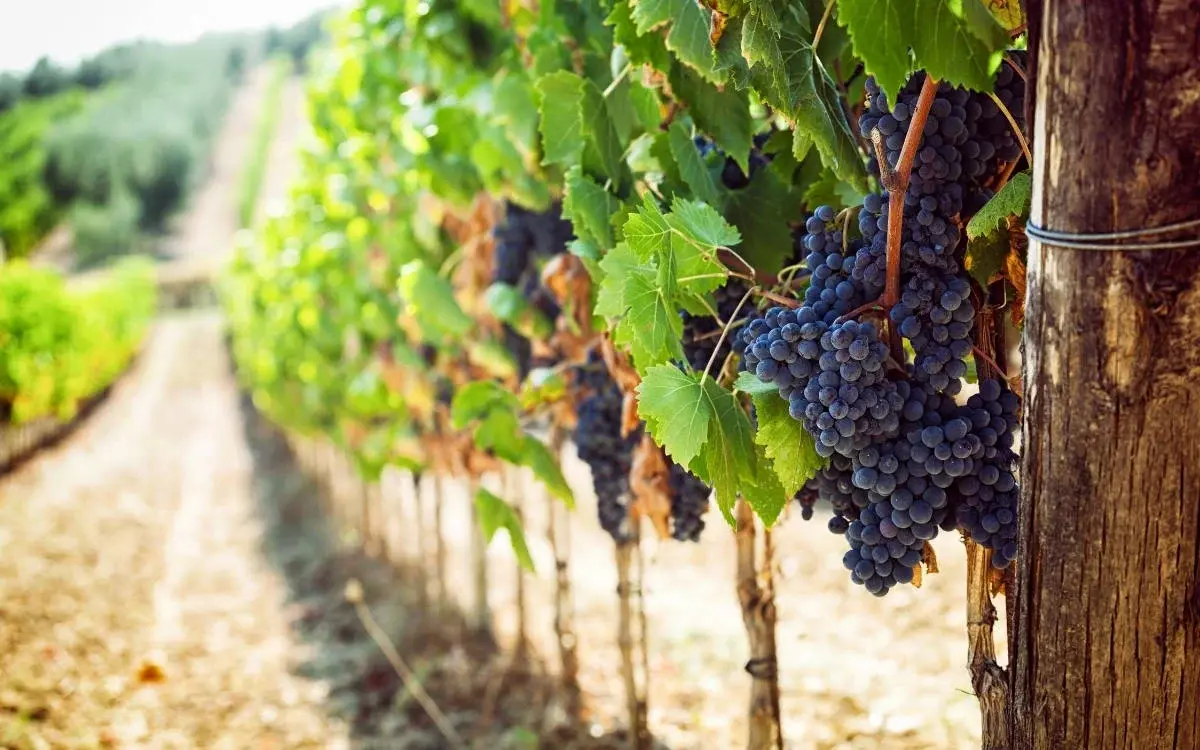Climate change may affect grape cultivation in Turkey


According to a new study investigating how the climate crisis will affect the suitability of vineyard areas for grape production in Turkey, expected temperature increases and decreased rainfall over the next 30 years could alter favorable conditions in grape-producing regions.
Although grapes, which are widely cultivated in over 40 countries worldwide, can be grown over a wide area, they are highly sensitive to climate change. Therefore, the climate crisis significantly affects the quantity and quality of grape production.
The study suggests that the anticipated temperature extremes, changes in rainfall patterns, and drought expected in the coming period could adversely affect viticulture activities. For example, a decrease in yield is expected in Manisa and Denizli provinces, which together account for approximately half of Turkey's total grape production, where Sultana grapes are cultivated.
Boğazkere, Öküzgözü, and Şire
On the other hand, it is predicted that the suitable conditions for Sultana grapes could shift to the inland areas of the Western Black Sea and the western part of Eastern Anatolia. Similarly, it is anticipated that the coastal and inland areas of the Aegean Region will become more suitable for varieties requiring high temperatures, such as Boğazkere, Öküzgözü, and Şire.
Taking measures to minimize the adverse effects of the climate crisis on grape production may involve cultivating varieties that can better withstand high temperatures and water stress, as well as growing them in regions that offer suitable conditions.
'Cold' regions may become suitable
Our study is based on the 'pessimistic' climate change scenario (RCP8.5), where greenhouse gas emissions continue at high levels. Calculations were made for three different indices based on temperature data with increased resolution using a regional climate model of two different global climate models, and these indices were categorized based on the total temperature sum, comparing the period from 2022 to 2050 with the reference period from 1972 to 2000 for Turkey.
Thus, considering the interactions between climate requirements and the growth cycle of grapevines, changes in the suitability of vineyard areas in Turkey were revealed.
Decrease in Sultana grape yield
Calculations for the next 30 years for all three indices indicate a significant increase in index values and categorical changes in the temperature sum range by at least one level. These changes suggest potential variations in the aroma and quality of grapes due to adverse effects on optimal climatic conditions in geographical regions where grapevine species are grown in Turkey.
According to the findings of the research, no transition to the cold category is projected in any province of Turkey based on these indices. However, an increase in temperature is expected particularly in the west, east, and coastal regions of the country.
Projections for the mid-century indicate a decrease in yield in Manisa and Denizli provinces, where Sultana grapes, accounting for approximately half of Turkey's total grape production, are cultivated.
This article, authored by Dr. Nazan An and Dr. Tufan Turp from Boğaziçi University, is presented in partnership with the Climate Desk and bianet after undergoing editorial revisions for brevity.
İklim Masası is a news service aimed at disseminating reliable information about the climate crisis to the public. Its authors consist of scientists with expertise in the topics they cover.
(TY/VK)






